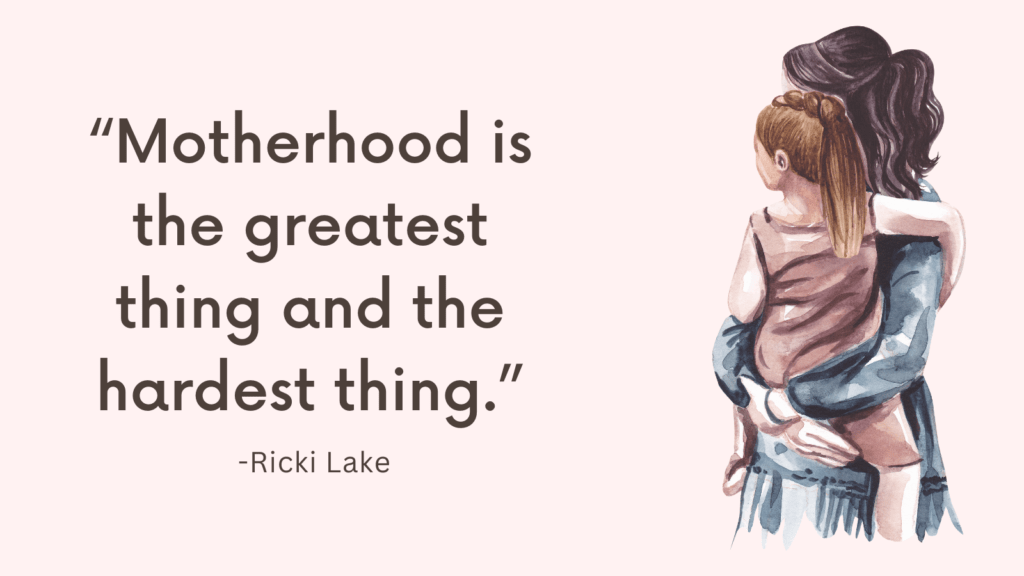In this post, you’re going to learn all about unicorn baby.
What Is a Unicorn Baby?
A unicorn baby is a term that is often used to refer to a baby who is an exceptionally good sleeper.
It is sometimes used to describe a baby who sleeps through the night at a very young age or who has minimal disruptions to their sleep patterns.
This term is often used in parenting circles to express admiration or envy for parents whose babies have good sleep habits.
However, it’s important to remember that each baby is unique and may have different sleep patterns and needs.
Related: Newborn Care Resources (Information, Apps, Books, Podcasts)
Characteristics of a Unicorn Baby
Characteristics of a unicorn baby may include:
1. Good sleeper
A unicorn baby is often described as a good sleeper, which is a characteristic highly sought after by parents.
These little ones seem to possess an innate ability to fall asleep easily and stay asleep for longer stretches of time.
They rarely fuss or wake up frequently during the night, allowing their parents to get some much-needed rest.
For example, a unicorn baby might sleep for six to eight hours straight at night, waking up refreshed and content.
This exceptional trait brings a sense of calm to the household, as parents are able to establish a consistent sleep routine and have more time for self-care or spending quality moments with their partner.
It is important to note that while some babies are naturally good sleepers from birth, others may require gentle guidance and a consistent sleep environment to develop this skill.
Nonetheless, a unicorn baby’s ability to sleep well can greatly contribute to their overall well-being and create a positive atmosphere within the family.
Related: Top 7 Alternatives To Swaddling to Soothe Your Baby
2. Contentment
A unicorn baby is often characterized by their contentment, which sets them apart from other infants.
These babies seem to have a natural disposition for being satisfied and peaceful, creating a harmonious environment for both themselves and their caregivers.
They display a remarkable ability to be calm, even in stressful situations, making it easier for parents to navigate the challenges of parenthood.
Unicorn babies often exhibit contentment through their relaxed body language, soothing demeanor, and a consistent sleep schedule.
For example, they may fuss less frequently than other babies, and when they do, they are easily comforted.
These little ones tend to adapt well to changes, whether it’s a new routine or a different environment.
Observing their tranquil nature can be a source of comfort and joy for parents, as it allows them to enjoy more moments of peace and relaxation.
Related: Newborn Doesn’t Like Swaddle? Here’s What to Do Instead
3. Self-soothing skills
One key characteristic of a unicorn baby is their exceptional self-soothing skills.
These babies have a remarkable ability to calm themselves down and find contentment without relying heavily on external support.
They can often be observed peacefully falling asleep on their own or entertaining themselves with minimal fuss.
For example, a unicorn baby may suck on their fingers or thumb to soothe themselves, or they may gently rock back and forth to find comfort.
Their self-soothing abilities can bring a sense of relief and independence to parents, as they don’t always require constant attention or intervention.
It’s like having a built-in pacifier or a natural ability to create inner peace.
Having a baby with self-soothing skills can also contribute to better sleep patterns, as they are more likely to settle themselves back to sleep during night awakenings.
Related: Baby Swing Vs Bouncer
4. Predictable routines
A unicorn baby is often characterized by its predictable routines, which can bring a sense of ease and stability to parents.
These babies tend to establish regular sleeping and eating patterns early on, making it easier for parents to plan and manage their daily activities.
For example, a unicorn baby may consistently wake up at the same time each morning, take regular naps throughout the day, and follow a set feeding schedule.
This predictability allows parents to anticipate and meet their baby’s needs, and also provides a sense of structure and routine for both the baby and the family as a whole.
Additionally, having a unicorn baby with predictable routines can contribute to better sleep for everyone involved, as the baby learns to settle into a consistent sleep schedule, minimizing disruptions during the night.
Related: 10 Best Books For New Moms
5. Gradual transitions
A unicorn baby is often characterized by gradual transitions, showcasing their adaptability and ease in navigating new experiences.
These babies tend to transition smoothly from one stage to another, whether it be moving from breastmilk to solid foods or transitioning from a crib to a toddler bed.
They embrace change with a calm and patient demeanor, making the journey easier for both themselves and their parents.
For example, when introducing new foods, a unicorn baby may start by exploring tastes through purees before gradually transitioning to mashed or cut-up pieces.
Similarly, they may take small steps such as spending short periods in a toddler bed before feeling comfortable enough to sleep through the night in it.
Their gradual approach allows them to adapt at their own pace, building confidence along the way.
The characteristics of gradual transitions in a unicorn baby can bring joy and peace to parents, as they witness their child navigate various milestones smoothly and with a sense of calm assurance.
Related: Best 10 Newborn Care Books
How Can I Help My Baby Become a Unicorn Baby?
While there is no surefire way to guarantee that your baby becomes a “unicorn baby” (a term often used to describe babies who are generally easy-going and sleep well), there are some strategies you can try to help promote healthy sleep habits and overall contentment in your little one.
Here are some suggestions:
1. Establish a consistent bedtime routine
Create a calming routine that signals to your baby that it’s time to wind down and prepare for sleep.
This may involve activities such as a warm bath, gentle massage, reading a book, or singing a lullaby.
2. Set a soothing sleep environment
Ensure that your baby’s sleep space is conducive to relaxation and rest.
Make sure the room is dark, quiet, and at a comfortable temperature.
Consider using white noise or a soft nightlight if it helps your baby feel more secure.
Related: When Do Babies Go From 2 Naps To 1
3. Encourage self-soothing techniques
Help your baby learn to soothe themselves to sleep by giving them opportunities to practice independent settling.
This might involve placing them in their crib while drowsy but still awake, allowing them to gradually learn to fall asleep on their own.
4. Establish a consistent sleep schedule
Babies thrive on routine, so aim to establish regular nap and bedtime schedules.
This consistency helps regulate their internal clock, making it easier for them to settle into sleep.
Related: How To Sleep Train For Naps?
5. Respond to your baby’s needs promptly
While promoting independent sleep is important, it’s also crucial to respond to your baby’s needs, especially during the early months.
Attend to their hunger, discomfort, and need for comfort and reassurance.
Providing a nurturing and responsive environment builds trust and security.
Related: Best 10 Sleep Training Books
6. Practice gentle sleep training methods
If your baby is having difficulty with sleep, you may consider gentle sleep training techniques that focus on gradually teaching your baby to self-soothe and fall asleep independently.
Consult with a pediatrician or sleep consultant for guidance and support.
7. Take care of yourself
Caring for a baby can be demanding, so it’s essential to prioritize self-care.
Make sure you are getting enough rest, eating nutritious meals, and seeking support from loved ones.
When you are well-rested and grounded, you’ll have more patience and energy to support your baby’s needs.
Related: Top +200 Stuffed Animal Names
Conclusion
Not all babies will possess these characteristics, and that’s perfectly normal.
Each baby is unique and will have their own individual temperament and sleep patterns.




